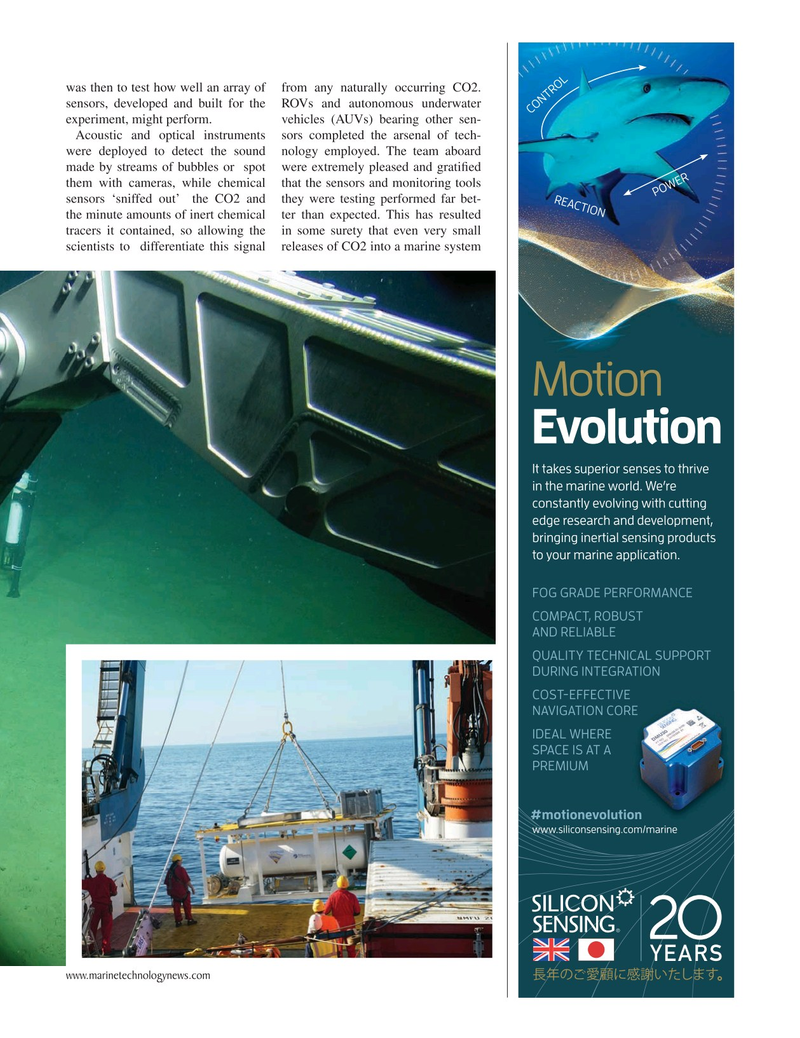
Page 25: of Marine Technology Magazine (September 2019)
Autonomous Vehicle Operations
Read this page in Pdf, Flash or Html5 edition of September 2019 Marine Technology Magazine
was then to test how well an array of from any naturally occurring CO2. sensors, developed and built for the ROVs and autonomous underwater
CONTROL experiment, might perform. vehicles (AUVs) bearing other sen-
Acoustic and optical instruments sors completed the arsenal of tech- were deployed to detect the sound nology employed. The team aboard made by streams of bubbles or spot were extremely pleased and grati? ed them with cameras, while chemical that the sensors and monitoring tools
POWER sensors ‘sniffed out’ the CO2 and they were testing performed far bet-
REACTION the minute amounts of inert chemical ter than expected. This has resulted tracers it contained, so allowing the in some surety that even very small scientists to differentiate this signal releases of CO2 into a marine system
Motion
Evolution
It takes superior senses to thrive in the marine world. We’re constantly evolving with cutting edge research and development, bringing inertial sensing products to your marine application.
FOG GRADE PERFORMANCE
COMPACT, ROBUST
AND RELIABLE
QUALITY TECHNICAL SUPPORT
DURING INTEGRATION
COST-EFFECTIVE
NAVIGATION CORE
IDEAL WHERE
SPACE IS AT A
PREMIUM www.marinetechnologynews.com
MTR #7 (18-33).indd 25 8/29/2019 3:48:14 PM

 24
24

 26
26
